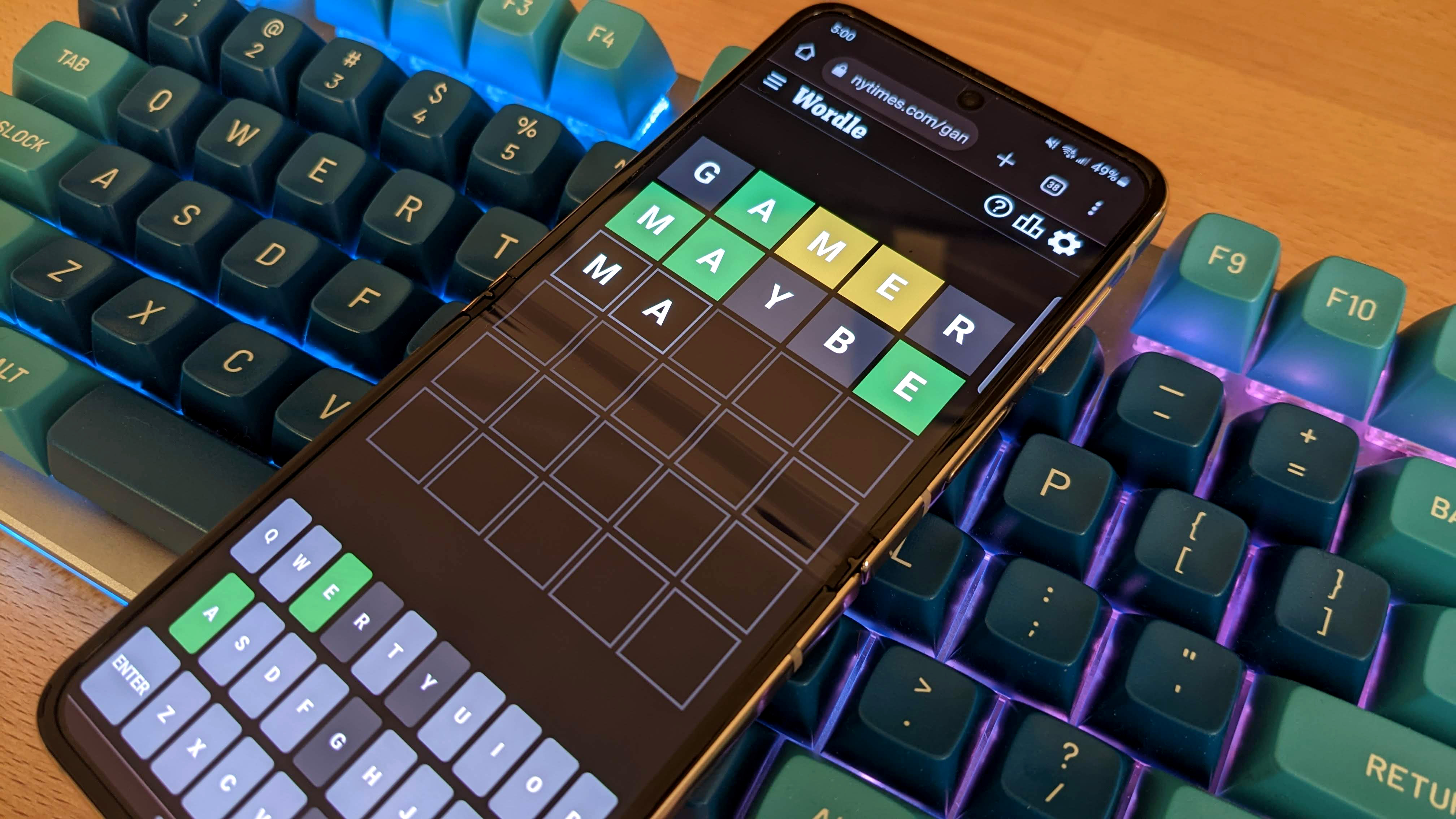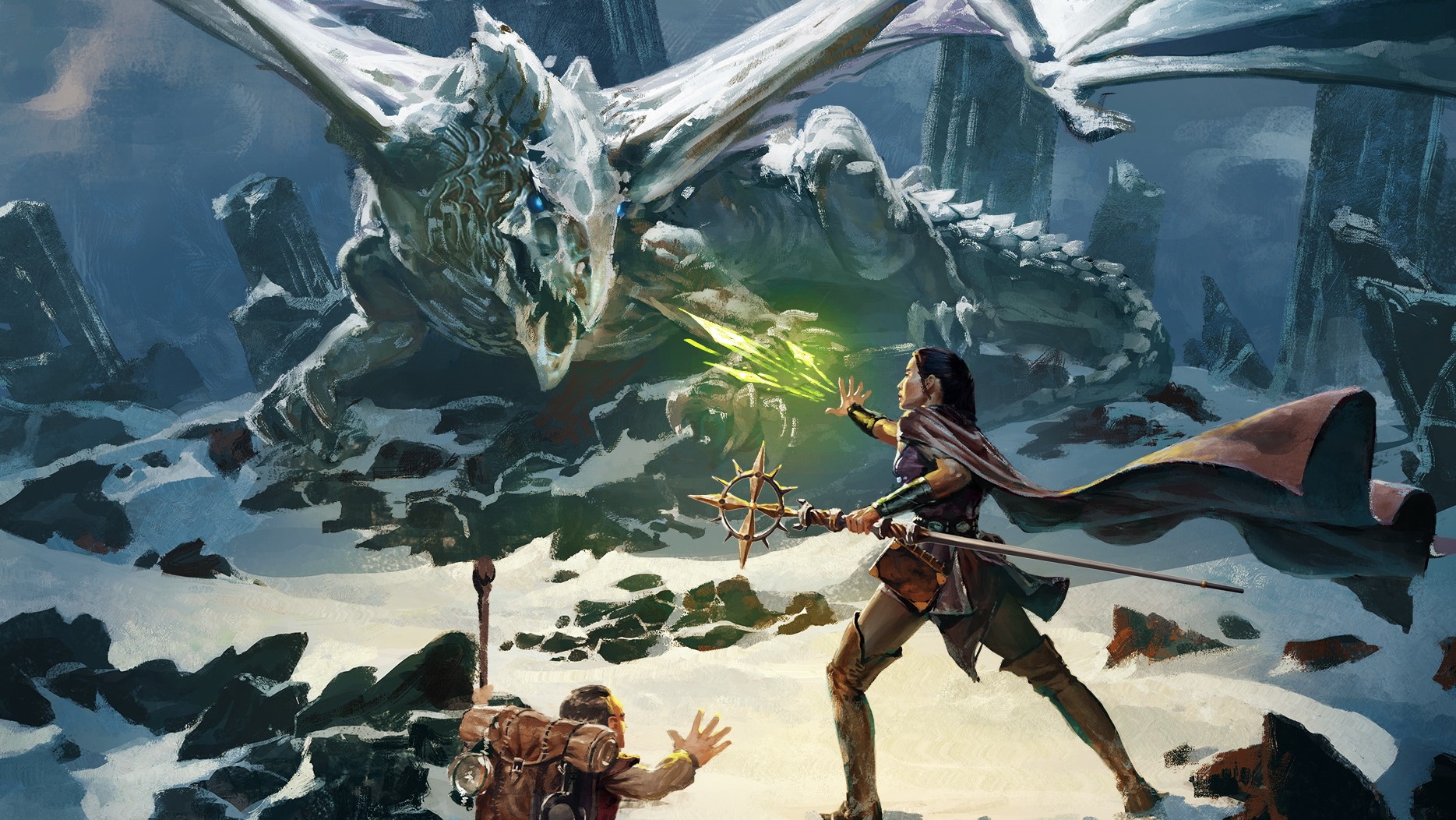
There's something to love here, despite the messy open world.
What is it? An open-world action about running fast.
Expect to pay $60/£50
Developer Sonic Team
Publisher Sega
Reviewed on GeForce GTX 1070, i7-7700, 16GB RAM
Multiplayer? No
Link Official site
Stunts are always cool. Running at 100mph, boosting your way through hoops before arcing gracefully around a loop-the-loop is never not fun. Unfortunately it takes Sonic Frontiers a while to get there.
While out on a bi-plane adventure to investigate the Starfall Islands, Sonic and pals are unexpectedly sucked into cyberspace through a wormhole. While Sonic manages to run fast enough to escape back into the real world, Amy and Tails aren’t as lucky and find themselves stuck as holograms. Sonic has to navigate the islands by unlocking portals, fighting bosses and collecting bits and bobs to get his friends back to normal. Of course, it’s not that simple, as an AI called Sage teams up with Eggman to get in your way as you unravel the deeper mysteries surrounding the islands.
(Image credit: Sega)
The world is structured in two halves. There’s cyberspace, which plays out like classic Sonic levels and has you zooming towards the goal as fast as you can, and the Starfall Islands themselves, which are a series of open-world spaces for you to explore. The first time you escape cyberspace into the real world you’re presented with an incredibly bland landmass of grey rock and flat grass. It’s really not a great start—the world feels cold and empty, but over time giant loops and bounce pads are added, turning the landscape into a theme park as you progress.
In all honesty, if I didn’t have to push past the beginning for the sake of review, I would have bounced right off and missed out. But things really start to click at the three-hour mark, as new rails and paths are added to the map—making traversal so much more satisfying.
Sonic himself also feels slow at first. His turning circle feels huge, which is an issue when there are tight corners to navigate when ricocheting around platforms or while searching for various paths in the more old-school sonic levels. He does get faster once you start finding the bell-like Koco creatures dotted around the world and return them to the Elder Koco in exchange for speed boosts. Once you hit the level 7 upgrade, Sonic finally starts to feel like he should. He feels so much more graceful to manoeuvre at speed—there’s nothing quite like gliding along a rail with sparks flying at your heels before flipping to another and boosting through a series of hoops to reach your destination.
(Image credit: Sega)
Cool runnings
Sonic is also quite handy in a fight. Simple strikes can be combined together with more skills over time. A few hits is enough to down basic enemies, but the new maps are also filled with Shadow Of the Colossus-style giants to take on that require more thought. Some you can watch for breaks in their movesets before striking, others, like the giant Asura, will need you to navigate a path up their bodies to find their vulnerable squishy bits. For a game about running, fighting is weirdly at home here. Unfortunately that all goes to pot when you reach the Titan fight at the end of each area. While the Titans are intimidating to look upon, fighting them involves a mess of setpiece action sequences and free-form flying to take them down. While the scale of them is exciting, the pacing feels so at odds with the rest of the game. You’re left feeling confused by an over the top light show.
It’s really not a great start—the world feels cold and empty, but over time giant loops and bounce pads are added.
The cyberspace sections provide the spectacle the overworld lacks, and are full of bright colours and giant loops for Sonic to sprint though. They’re also punishing. The camera often swings around to change your view and angle of running. Hitting enemies causes you to dash to them with an impressive burst of speed, but as soon as they’re cleared you’ll come to a complete stop and have to build your speed up from scratch again. You’re better off avoiding them. However, Sonic’s new Cyloop ability is great fun—it lets you draw paths around objects or enemies as you run to deal damage or solve puzzles.
The progression system is a mess of currencies. To reach any of the Titans you’ll first need to collect the Chaos Emeralds, and to collect those you’ll need gate keys, but to get those you’ll need to collect gears to open cyberspace portals. You’ll also need a load of other collectibles to upgrade skills and progress, but with so many twinkly objects to keep track of it’s hard to know where to focus first. It’s meant to encourage exploration, but it doesn’t quite work—instead it feels like you’re being pulled in 10 different directions at once because the world itself isn’t worth exploring. Traversal is more about testing your skills and pulling off rad stunts than actually looking around. That’s not a criticism, necessarily—getting around Starfall Islands and riding the rails feels amazing—but hunting for sparkly trinkets isn’t a great incentive to do so.
(Image credit: Sega)
Unfortunately I did come across some odd bugs. The game could get confused when I had a controller plugged into my PC, which made movement impossible—annoying when this is definitely the kind of game you want to use a controller for. The keyboard controls are fine, but it’s not as intuitive when you try to pull off combos in a fight. There’s also a lot of pop-in which can cause surprises when you don’t know if there is a route up ahead for you to follow until it appears into existence.
I struggled with Sonic Frontiers. While ricocheting around pin-ball like arenas and boosting up walls to reach seemingly impossible places feels rad as hell, the world it’s all set in is flat. The drama of the story makes for a compelling reason to keep playing, but it’s hard to recommend Frontiers given how much gets in the way of letting you enjoy the purity of Sonic’s movement.



